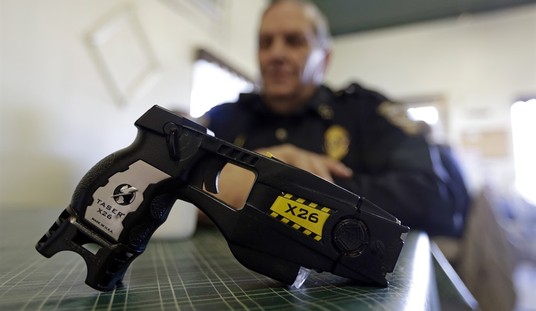As corporate America has grown increasingly “woke” over the past few years, one of the biggest targets of supposedly socially conscious financial institutes has been the firearms industry. Banking giants like Bank of America and Citigroup have declared that they won’t do business with companies that manufacture modern sporting rifles, and even independent gun shops have found themselves shut out of banking with some of the industry’s biggest players.
A bill in Texas is aiming to incentivize these banks to drop their anti-gun activism by blocking them from doing any business with state and local governments, and the legislation is one step closer to passage after the House gave its approval on Thursday afternoon.
If enacted, the Texas legislation could hurt the banks municipal underwriting business in Texas, a fast-growing state that’s a major source of debt issues in the $3.9 trillion municipal-bond market. Texas-based issuers accounted for $58 billion of debt sales in 2020, the second-most of any state behind California, according to data compiled by Bloomberg.
Spokespeople for Bank of America and Citigroup declined to comment.
The House version of the bill provides an exemption that would allow banks to still participate in certain short-term note sales issued by the Texas Comptroller of Public Accounts, a type of short-term debt issued that can cover revenue shortfalls.
The legislation would affect governmental entities, which Texas law defines as state agencies, as well as political subdivisions like counties, municipalities and school districts. An amendment proposed on Thursday that would have exempted municipalities’ bond sales failed.
Democrats have voiced two main objections to the bill. State Rep. Gene Wu, argued that the state is trying to restrict the speech rights of these financial institutions, saying ““We don’t need a thought police. We don’t need speech police. Let Texans be.”
That’s a cute way to argue in favor of banks being allowed to discriminate against a legal industry. And it’s especially rich coming from Wu, who’s accused Donald Trump, Texas, Sen. John Cornyn, and others of inciting violence against Asian Americans by blaming China for the COVID-19 pandemic.
And the best example of this is what happened in Midland. This guy attacked a Burmese family. To Asian Americans, Burmese look nothing like Chinese—that’s really, really obvious to anyone in the community. But the fact that they looked Asian set them out as being alien. I mean, that person didn’t ask them where they’re from. He didn’t ask them, ‘Are you an American?’ He just attacked them because they looked Asian. In his mind, he thought they were Chinese. And that is a type of brutality that we’re concerned about. Because when Trump says these things, when Cornyn says these things, when Kathaleen Wall runs a freaking TV ad about these things, that is a go signal, that is a dog whistle to a certain population to say this is now fair game.
Besides Wu’s bizarre pro-discrimination argument, other Democrats are worried that the bill will end up hurting Texans more than the big banks.
The bill will have “a severe impact on city operations,” said Vikki Goodwin, the Democratic state lawmaker who proposed the amendment. She said the main concern she’s hearing is that the bill could impact bond issuances.
The bill would take effect Sept. 1.
“If I’m limited in who I can do business with and talk to and engage with, that’s going to raise my costs and increase the cost to the taxpayers,” Elizabeth Reich, chief financial officer for the city of Dallas, said in an interview about the bill in April.
That stands to reason, but it’s also true that limiting who the firearms industry can do their financial business with raises their costs and increases the costs to their consumers, which includes the state of Texas and the city of Dallas.
Look, it would have been better if the proposed rule from the Trump administration declaring that financial institutions could only deny services to companies based on their balance sheet and not what legal product they make or service they provide, but Biden killed the rule almost as soon as he was sworn in.
Without a federal mandate, it’s up to states to send a message to these institutions, and all things considered, this is a fairly subdued pushback. It’s not like these lawmakers are forbidding anti-gun banks from doing any business in the state of Texas, which probably would run into constitutional concerns. But the state has the authority to determine who gets to play a role in the issuing of bonds here, so if Texas wants to tell these banks they can’t have any of this sweet, sweet taxpayer money because they’re pushing gun bans, they certainly can.
The loss of the Texas municipal bond market isn’t going to turn these companies insolvent by any means. In fact, it might not much of an impact at all on these gigantic financial institutions. On the other hand, if other red states follow suit, it might actually start to affect the banks’ bottom line, and maybe they’d be willing to take a second look at their discriminatory policies, which is ultimately the real issue.









